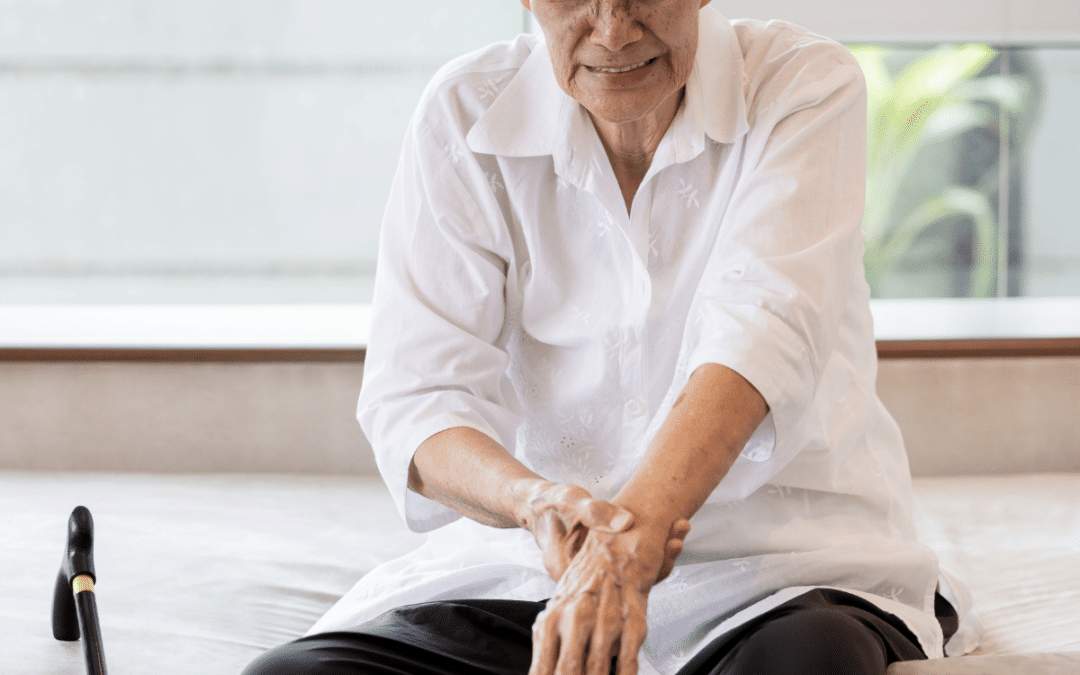Arthritis itself is an umbrella term for joint pain. There are over 100 different types of arthritis, and rheumatoid arthritis is one of the most common forms. It usually starts between the ages of 40 and 60, and gradually gets worse with age. Arthritis is characterised by swelling, pain, stiffness and diminished range of motion in joints. At Little Croft Care Home, we have a lot of experience in maximising the comfort and quality of life of our residents suffering from any common forms of arthritis.
What is Rheumatoid Arthritis?
Rheumatoid arthritis is the most common form of autoimmune inflammatory arthritis. The immune system should trigger inflammation to protect the body from viruses, bacteria and any other invaders to the body. With rheumatoid arthritis there is an immune system dysfunction, which involves the body’s immune system attacking muscles and joints instead of operating how it should; this can cause pain in all areas of the body. Instead of protecting the body, it attacks healthy joints and tissue, causing pain. Persistent inflammation from RA can lead to permanent joint and organ damage.
What Causes Rheumatoid Arthritis?
Though the cause of rheumatoid arthritis is largely unknown, many risk factors have been identified.
Environmental Risk Factors
The biggest known risk factor for developing rheumatoid arthritis is smoking, with the risks increasing with the length of time spent smoking. Having RA and being a current smoker can also exacerbate symptoms. Exposure to tobacco smoke from a young age can also greatly increase risk; one study found that children whose mothers smoked had double the risk of developing RA as adults.
Being overweight can also increase the risk of developing RA.
Genetic Risk Factors
Even if no one in the family has been diagnosed with rheumatoid arthritis, it is still possible to carry the genes that can increase the likelihood of RA without them being expressed. Genes that are most likely to lead to RA are the HLA (human leukocyte antigen) class II genotypes. These genes being present, paired with environmental risks can greatly increase the likelihood and severity of RA.
Links to Hormones
Instances of rheumatoid arthritis are two to three times higher in women, as it can be brought on by hormonal changes like giving birth, or menopause.
How Does Rheumatoid Arthritis Differ from Other Forms of Arthritis?
The most common types of arthritis, along with rheumatoid arthritis are osteoarthritis, psoriatic arthritis, fibromyalgia and gout, each of which is brought about in different ways.
Psoriatic Arthritis
Like rheumatoid arthritis, psoriatic arthritis is also an autoimmune inflammatory disease, where the immune system attacks the body, particularly the skin and joints which can cause rashes on the skin. Psoriatic arthritis is most common in those already suffering from psoriasis (an autoimmune disease which can cause reddish or silver scaly patches of skin due to the acceleration of skin cell creation).
Fibromyalgia
Fibromyalgia is caused by a dysfunction in the central nervous system which causes widespread pain which can be constant or come and go. In Fibromyalgia it is believed that pain signals are amplified by the central nervous system.
Gout
Gout is also a form of inflammatory arthritis, which is often localised within the body, usually in the big toe. It is caused by a build-up of uric acid, which the body cannot remove quickly enough. This can form crystals in the joints, which left untreated builds into lumps. This causes painful joint inflammation. Gout can strike suddenly and often without warning.
How Severe is Rheumatoid Arthritis
The severity of rheumatoid arthritis varies from person to person and can depend on the number of risk factors the person suffering from RA has. There has been a study which has shown that people with RA have an increased risk of mortality by 54% in comparison to those who do not have the disease. However, with treatment and lifestyle changes people with RA can live comfortably well into their 80s and 90s.

What is the Progression of Rheumatoid Arthritis?
Rheumatoid arthritis progresses in stages; the first stage is general joint pain, swelling and stiffness.
The second stage is where increased inflammation can damage the cartilage and bones, which can lead to a reduction in range of motion.
The third stage is a further reduction in mobility, and the development of joint deformities.
The final stage is characterised by previous symptoms becoming more chronic leading to it becoming much more difficult to manage the day-to-day tasks.
What are Tips for Living Comfortably with Rheumatoid Arthritis?
Early Diagnosis
Having a diagnosis early for rheumatoid arthritis can improve the outlook of the person suffering from RA greatly. Once diagnosed early, appropriate treatment can prevent long-term joint damage and minimise the impact on quality of life. If you or a loved one is experiencing undiagnosed joint pain then it is worth seeing a doctor early, to rule out RA in the best-case scenario, or provide a treatment plan if it is diagnosed.
Exercising Regularly
In the later stages of rheumatoid arthritis, mobility can become difficult, and many people with RA may not want to exercise for fear of worsening joint pain. However, regular exercise is key in reducing the effects of RA. Exercising can boost flexibility and strength that can support the joints and aid their function.
RA can also accelerate the loss of muscle mass, which is common in elderly people, so in order to reduce this risk, regular exercise can maintain strength levels.
Exercises such as walking can also help to maintain bone density, which can be lost as an effect of RA.
Though in general exercise can’t worsen rheumatoid arthritis, if joint degradation has already taken place, it would be beneficial to choose low-impact exercises such as swimming, walking, or cycling.

Anti-Inflammatory Foods in Diet
There is no miracle diet for arthritis, but increasing consumption of anti-inflammatory foods can ease pain and joint damage. In particular, the Mediterranean diet is hailed for being high in anti-inflammatory properties, and rich in other vitamins and minerals to keep the body healthy. It is made up of a large number of grains, healthy fats, fruits, vegetables, nuts, seeds and fish. Olive oil in particular, which is extremely popular in Mediterranean cooking, is a great alternative to other fat sources in the diet. Olive oil contains a compound called oleocanthal which reduces inflammation and acts almost like ibuprofen in terms of alleviating pain.
At Little Croft Care Home, we understand the importance and benefits of a healthy diet, which is why all our residents receive fresh home cooked meals with a variety of fruits, vegetables, and healthy fats and proteins.

Reaching or Maintaining a Healthy Weight
As being overweight is a risk factor for rheumatoid arthritis, reaching and maintaining a healthy weight can reduce its effects. Following a healthy diet, as mentioned above, also has its own benefits.
Quitting Smoking
As smoking is such a huge risk factor for developing RA, quitting can reduce its symptoms. The NHS has a number of services available to help with quitting.
Following the Advice of Your Doctors
Medical treatment for rheumatoid arthritis often involves input from your GP, as well as assistance from other specialists. There are two main types of medicine available for RA and these can be split into biological treatments, and disease-modifying anti-rheumatic drugs (DMARDs)
Biological Treatments
Biological treatments are a fairly new way of treating RA which is usually taken alongside DMARDs. These are usually administered via injections and prevent chemicals in the blood from activating the immune system, and therefore prevents attacking of the joints.
DMARDs
DMARDs will often be given as a combination of tablets, which block the effects of the chemicals that are released when the immune system goes to attack the joints, in order to prevent further irreversible damage. It can take a few months for the effects of DMARDs to become apparent, and can take trying several different types to find when that is right for the individual.
Rheumatoid arthritis, when diagnosed early, can be limited in its effects through lifestyle changes and seeing a medical professional. It is completely possible to live a normal life with rheumatoid arthritis and limit the pain. At Little Croft Care Home, we are experienced in caring for seniors with a variety of types of arthritis, and ensuring their comfort. We are also able to provide advice where needed; if you would like more information, please get in touch with a member of our team today!

